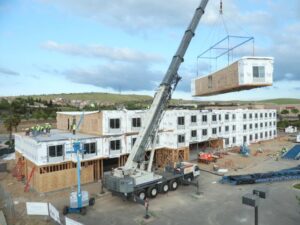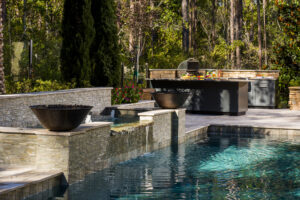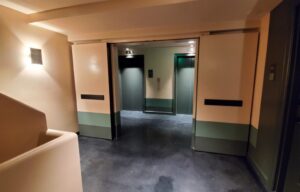Los Angeles, often dubbed as the entertainment capital of the world, is a bustling city that never seems to slow down. With its iconic landmarks, beautiful beaches, and a thriving entertainment industry, it’s no wonder that Los Angeles is a popular destination for travelers from all over the world. As a result, the city is in a constant state of development and renewal, with new hotels springing up to accommodate the ever-increasing number of visitors. However, constructing these new hotels is no small feat, and the process generates an immense amount of debris and waste. This is where construction clean-up in Los Angeles comes into play.
In this article, we will delve into the reasons why new hotels being built in Los Angeles need construction clean-up services. From safety and environmental concerns to project efficiency and aesthetics, the advantages of professional construction clean-up are multifaceted and paramount to ensuring the success of these new developments.
Safety First
Construction sites are inherently hazardous places, with a variety of risks that can lead to accidents and injuries. Debris, dust, and sharp objects are just a few of the potential dangers that can be present during the construction phase. Ensuring the safety of the workers on-site and the general public is a top priority. Construction clean-up plays a pivotal role in mitigating these risks by removing and properly disposing of hazardous materials, keeping the site clean and organized, and reducing the chances of accidents.
Compliance with Regulations
Local and state regulations in Los Angeles require construction sites to meet specific cleanliness and safety standards. Failure to comply with these regulations can lead to costly fines and delays in project completion. Professional construction clean-up services are well-versed in these regulations and ensure that the site is in full compliance, helping to prevent any unnecessary setbacks.
Environmental Responsibility
Environmental concerns are at the forefront of modern construction practices. Los Angeles, like many other major cities, is increasingly focused on sustainability and environmental protection. Construction clean-up services employ eco-friendly methods to dispose of waste materials, which is vital in reducing the environmental impact of construction projects. By recycling and properly disposing of materials, they help hotels contribute to a greener Los Angeles.
Project Efficiency
Efficiency is key in the construction industry. Delays can be costly and can negatively impact a hotel’s profitability. Construction clean-up helps maintain a streamlined workflow by eliminating obstacles and debris that could slow down the construction process. This not only keeps the project on schedule but also saves money by reducing the need for extra labor and equipment.
Aesthetic Appeal
First impressions matter, and this holds true for hotels. The appearance of a hotel under construction can greatly affect potential guests’ perception of the establishment. A messy and cluttered site can create a negative impression, while a clean and organized site suggests professionalism and attention to detail. Construction clean-up ensures that the hotel under construction maintains a positive image throughout the building process.
Preventing Damage
Construction activities often generate dust and debris that can settle on nearby structures, vehicles, and even the environment. This can lead to damage that may be costly to repair. Proper construction clean-up prevents these issues, safeguarding the surrounding areas from the potential harm caused by construction-related debris.
Quality Control
New hotels aim to provide a comfortable and safe environment for their guests. Construction clean-up is a vital step in ensuring the quality of the final product. It eliminates any potential issues that may affect the functionality, safety, or overall appeal of the hotel. Quality control through clean-up services ensures that guests enjoy a hassle-free and pleasant stay.
Reputation Management
Hotels in Los Angeles are not just buildings; they are brands. A hotel’s reputation is often built on its ability to provide exceptional service and experiences to guests. The construction phase can be a public relations challenge, and negative perceptions can stick in the minds of potential customers. By investing in construction clean-up, hotels show that they are committed to maintaining high standards even during the construction process, which can positively impact their reputation.
Conclusion
The construction of new hotels in Los Angeles is an exciting endeavor, but it comes with its unique challenges and responsibilities. Construction clean up Los Angeles is a crucial step in ensuring the success of these projects, from safety and environmental compliance to project efficiency and reputation management. It is a vital investment that pays off in the long run by ensuring that the final product is of the highest quality and that the hotel’s image remains untarnished.
In a city that never sleeps, new hotels will continue to rise, and the need for construction clean-up in Los Angeles will persist. By prioritizing clean-up services, hotels can build not only their structures but also their reputations and contribute to a cleaner, safer, and more sustainable Los Angeles for all.







